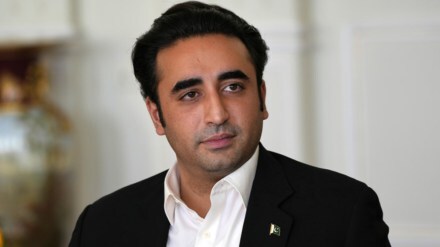Pahalgam Terror Attack: After Defence Minister Khawaja Asif, Pakistan Peoples Party (PPP) chief Bilawal Bhutto-Zardari has acknowledged that Pakistan has a troubled history with extremist groups, which has caused immense suffering for the country. Speaking in an interview with Sky News, Bhutto-Zardari addressed Pakistan’s past involvement with terrorism, following a question on Defence Minister Khawaja Asif’s recent controversial statement. Asif had said that Pakistan had supported, trained, and funded terrorists as part of doing the West’s “dirty work” for decades.
Bhutto-Zardari, who served as Pakistan’s foreign minister, stopped short of fully endorsing Asif’s comments but admitted the country’s history with extremism is well-known. “It’s not a secret that Pakistan has a past as far as extremist groups are concerned. And as a result of this, we have suffered. Pakistan has suffered,” he said, adding that the country has faced repeated waves of extremism and has undergone internal reforms to prevent such occurrences in the future.
‘We have learned our lessons’, says Bhutto
The PPP leader said Pakistan has attempted to turn a corner from its past by enacting reforms, both for its own security and in response to international concerns. “We went through the Islamisation and militarisation of our society. But as a result of what we suffered, we also learnt our lessons,” he noted.
Bhutto-Zardari reminded viewers that he has personally borne the cost of terrorism. His mother, former Prime Minister Benazir Bhutto, was assassinated in a terrorist attack in 2007. “It is true that it’s an unfortunate part of our history. We are not alone in this history,” he said, pointing to Pakistan’s past collaborations with Western powers, including the United States, in counterterrorism efforts.
What did Bhutto say about India’s response to the Pahalgam attack?
The interview comes amid heightened India-Pakistan tensions following the April 22 terror attack in Pahalgam, Jammu and Kashmir, that killed 26 people, most of them tourists. India has accused Pakistan-based terrorists of carrying out the massacre, identified two of the three attackers as Pakistani nationals, and retaliated with a series of diplomatic and economic measures.
These include suspending the Indus Waters Treaty, closing Indian airspace to Pakistani airlines, and authorising the military to respond as it sees fit. Bhutto-Zardari responded to the treaty row, clarifying that his previous remark—“either the water flows or their blood flows”—was not a call for violence. He insisted Pakistan seeks peace, saying, “We do not want war. We’ve been seeking to engage with India for some time.”
The Indus Waters Treaty, signed in 1960, has long been a symbol of cooperation between the two nations despite hostilities. India’s move to suspend it, following the terror attack, has led to fears of a deeper escalation.
